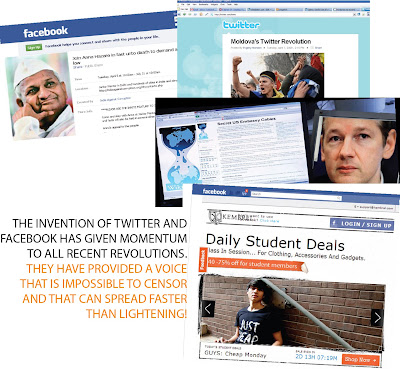WAKA WAKA… LET’S DO IT TOO!
The closing ceremony of the FIFA World Cup, brought a lot of things to an end, like checking scores, looking in disbelief as big teams like Italy, Argentina, Brazil etc fell, like a pack of cards, smiling & wondering whether to believe in the octopus Paul’s prophecy! As Shakira sang “Waka, Waka,” the perfect cheering song meaning “Do it” during the closing ceremony, the world held its breath in anticipation. Who would it be this time – Spain or Netherlands? However, for a few moments, everybody forgot about the finals when this person entered the stadium, as all 89,000 spectators rose to salute the great leader, who actually started it all. Nelson Mandela’s overpowering presence left many teary-eyed. South Africa became the first African nation to host the FIFA Would Cup. Years ago, it also was the same nation that was banned from FIFA due to the apartheid system.
If you have seen the heart touching film “Invictus” directed by Clint Eastwood, you would understand what a long & difficult journey Mandela tread to reach here. If there is one leader who understood the power of sports, it was this man – Nelson Mandela. In his first term as the newly elected president, in 1995, Mandela did the impossible. He united an apartheid-torn nation, brought them together using the universal language of sports, as he worked hard to make South Africa win the 1995 Rugby World Cup – where both blacks & whites of South Africa for the first time cheered together for their nation. From there to becoming a hosting nation of FIFA, all one can say – what a man!
IT’S MORE THAN SELLING SOCCER SHOES!
A few days back, Adidas launched a 60 - second viral to celebrate the success of its shoes F50 Adizero. The maximum number of goals during this World Cup were scored by players wearing the F50 Adizero shoe. While 20-year-old Thomas Mueller may have won the ‘Golden Boot Award’ and joined the club which has stars like Pele, Michael Owen etc, a totally different competition has started between Adidas & Nike. While Adidas in its viral claims its F50 to be the ‘2010 FIFA World Cup Top Scoring Boot’, Nike for its part claims the honours. After all, Iniesta who scored the winning goal for Spain was wearing Nike’s CTR360 Elite series boots.
Irrespective of whose claims are correct, this is sure, both brands would witness a surge in their sales. However, what’s interesting is FIFA or any other mega sporting events do more than just help sell sports shoes.
A month before the FIFA, people in UK were asked, “How safe is South Africa?” A good 56% responded ‘not safe’, while only 3% said ‘very safe’. Towards the end of the World Cup, 56% had changed their answer to ‘quite safe’. South Africa saw its image getting a boost after the world watched it on TV for about a month!
When Nigeria won the gold in soccer at the Olympic Games of 1996, even the Nigerian dictator General Sani Abacha saw a rise in his popularity in the eyes of the world (at least for some time) as the world lauded the Nigerian soccer team’s victory.
After the 2006 FIFA World Cup, a research was conducted which showed that the campaign launched by Germany under the slogan “Germany rolls out the red carpet” really worked. The country worked hard by training its “service ambassadors” in workshops, making its service providers aware of intercultural relations, building tolerance, learning foreign languages. After the games, in-depth interviews of people, who had never been to Germany before the games, showed that they thought Germans would be strict, unapproachable and intolerant, but found them friendly and pleasant! People actually forgot about Hitler and liked the Germans.
Yes, there are hosts of brands that use this opportunity to market their goods, but a sporting event gives a country a chance to showcase itself like never before. More than any brand, a country’s best and strongest image builders are its sporting teams. A win can leverage a country’s image, so can hosting a mega sporting event.
SPORTS – IS NO CHILD’S PLAY
A country’s image is extremely important and it makes business sense too. According to Simon Anholt, an expert on “Nations as Brands”, “...Countries with a powerful and positive image can export more products, more culture, more services and also attract more tourists, more investors, more attention and respect of other governments!”
People’s perception about countries is very very strongly linked to the country’s sporting excellence. A country that hosts a successful Olympics, or World Cup is remembered as opposed to one that hosts a “forgettable event”. Athens Olympics did nothing much for Greece. While Beijing Olympics changed China’s image in the eyes of the whole world.
The Nation Brand Index (NBI) is an important indicator of a country’s perception and it’s interesting to note that the ranking shows a direct correlation between a nation’s overall rank and its economic status.
NBI 2009 saw an interesting phenomenon. China had never changed its rank of 29 all these years; yet, this was the first time its rank moved from 29 to 22. It was because of the Olympics.
Today, countries take their branding very seriously. Last month, the International Olympics Committee announced the list of finalists who would bid for the Winter Olympics to be held in 2018. The three countries were France, Germany, and South Korea, with South Korea being seen as the front runner. A few months back, South Korea’s richest tycoon, Lee Kun Hee, the Chairman of Samsung Electronics, received a presidential pardon and was released from prison (he had been earlier arrested on criminal changes of tax evasion). The reason for his release was to help South Korea’s bid to host the 2018 Winter Olympics. Nations take sporting events very seriously and work in tandem with business houses to showcase their strengths years before the actual event.
“Image” is what counts and what matters most. Consumers in America or Europe will easily pay more for an unknown Japanese product than an identical Korean product. An Indian in a foreign market needs to work harder than, say his French counterpart, though both may be equally talented. It’s all because of the “images” of countries.
Great brands are built, when customers have “great experiences” using them. A sporting event or team gives others a chance to ‘see’, to ‘experience’ your country. An advertising campaign, however beautiful, can never make one country look ‘Incredible’. However, well organised, well planned and well marketed sporting events can make a country look grand, and get it international approval.
As one mega event comes to a close, one is left wondering – would India too be able to do this one day?
Just as corporations put in crores to build their corporate images and brand identities, it’s time countries did the same too. South Africa has probably managed to change its image from an apartheid torn country to a good host – India, it’s time you did too. Waka, Waka... let’s do it too!


Comments
Post a Comment